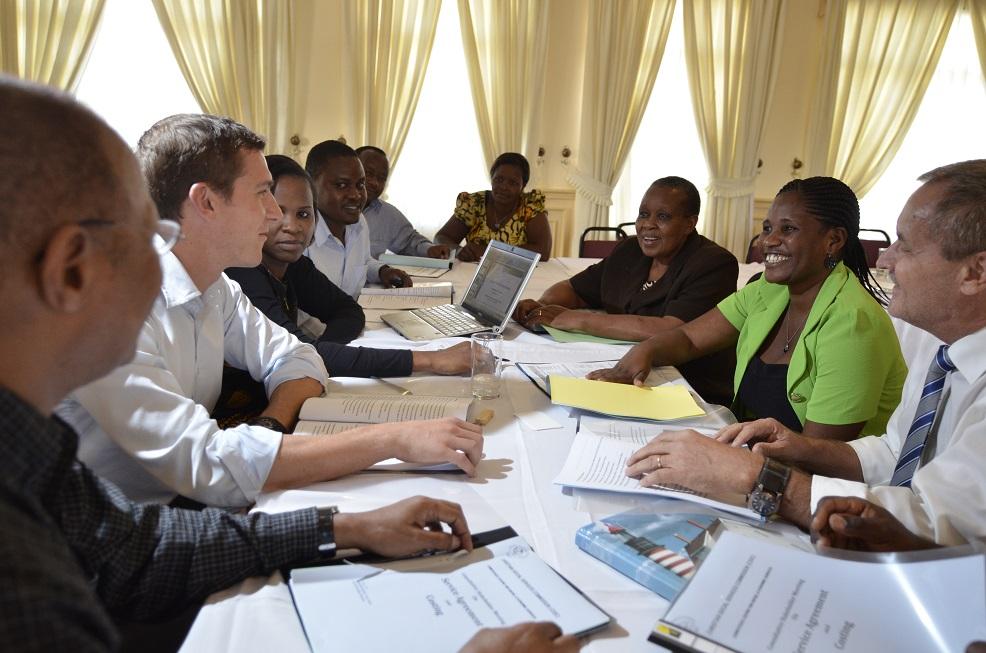Stakeholder Dialogues

© GIZ, Stakeholder Dialogues
Social aspects can only be addressed if all stakeholders are involved in a participatory way. A suitable instrument is the stakeholder dialogue. Stakeholder Dialogues (SD) are used to moderate a discussion between relevant public and private stakeholders. Dialogue platforms offer a space to exchange interests or explain activities undertaken by one or the other actor.
Two forms of SDs have been implemented in GIZ projects:
- Community Dialogue Platform (CDP)
- Round Table (RT)
Both, Community Dialogue Platforms and Round Tables, shall create awareness and understanding between stakeholders, and ease potential stress and conflicts related to environmental impacts and pollution. SDs provide a basis for an interactive action planning between policy makers, community, companies and other stakeholders.
Main features and components
Training and coaching of facilitators, which should be qualified to prepare a stakeholder dialogue on site. For the stakeholders, namely the community members, company representatives, and representatives of the local administration, training and coaching meetings should be arranged. The participants are instructed on general issues as well as on community action planning. Problem analysis training helps to obtain common understanding among the community on proceedings, objectives and potential solutions.
Implementation and work steps
- Stakeholder mapping and analysis
- Establishment of stakeholder dialogue platforms (Community Dialogue Platform or Round Table)
- Organising stakeholder dialogue platforms
- Development and implementation of action plans
Lessons learnt
Lessons learnt during the implementation of SD in GIZ projects:
- Communities often meet SD activities with great reservation, so the start-up of dialogue platforms has been informal.
- Focus on common issues is needed to motivate a wide range of stakeholders
- It is necessary to start with community action planning to get common sense on pressing problems and related explanations/reasons
In Tunisia the foundation of a “National Association of Industrial Park Management Units” was assisted in order to exchange on similar problems and help each other solving them.
Requirements
Willingness for discussion and exchange of interests between relevant stakeholders
Output
- Intensified relationship between operator, companies and neighbours.
- Reduction and mitigation of environmental impacts, conservation of resources
- Generating income for the community, promotion of corporate social responsibility
Downloads
Characteristics
Phase of intervention
Designing SIA, Master planning, Retrofitting, Operating SIA, Management
Level of intervention
Park management
Regions
Asia, MENA
Countries
Indonesia, Tunisia
Target groups
Community representative, Company, SME, Industrial area management and operator, Municipality
